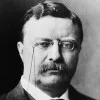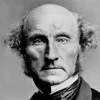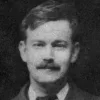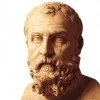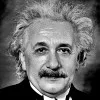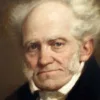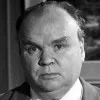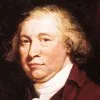In dictatorships there can be no party divisions. For all men must think as they are told, speak as they are told, write as they are told, live — and die — as they are told. In those countries the Nation is not above the party, as with us; the party is above the Nation; the party is the Nation. Every common man and woman is forced to walk the straight and narrow path of the party line, not strictly speaking a party line, but rather a line drawn by the dictator himself, who owns the party.
Franklin Delano Roosevelt (1882-1945) American lawyer, politician, statesman, US President (1933-1945)
Speech (1941-03-29), Jackson Day Radio Broadcast, U.S.S. Potomac
(Source)
Quotations about:
state
Note not all quotations have been tagged, so Search may find additional quotes on this topic.
I am a strong individualist by personal habit, inheritance, and conviction; but it is a mere matter of common sense to recognize that the State, the community, the citizens acting together, can do a number of things better than if they were left to individual action.
Theodore Roosevelt (1858-1919) American politician, statesman, conservationist, writer, US President (1901-1909)
Speech (1910-04-23), “Citizenship in a Republic [The Man in the Arena],” Sorbonne, Paris
(Source)
JUSTICE, n. A commodity which in a more or less adulterated condition the State sells to the citizen as a reward for his allegiance, taxes, and personal service.
Ambrose Bierce (1842-1914?) American writer and journalist
“Justice,” The Cynic’s Word Book (1906)
(Source)
Included in The Devil's Dictionary (1911). Originally published in the "Devil's Dictionary" column in the San Francisco Wasp (1886-01-09).
In fact the state is primarily an organization for killing foreigners, that’s its main purpose. There are, of course, other things they do. They do a certain amount of educating, but, in the course of educating you, try very hard to make the young think it is a grand thing to kill foreigners.
Bertrand Russell (1872-1970) English mathematician and philosopher
Interview by Woodrow Wyatt, BBC TV (1959)
Collected in Bertrand Russell's BBC Interviews (1959) [UK] and Bertrand Russell Speaks His Mind (1960) [US].
Since law constitutes the bond of civil society, and the authority of the law is equal, how can the society of citizens be maintained when their condition is not equal? If it be not pleasing to place their wealth on equal footing, and if everyone is endowed with unequal abilities, certainly all of those who are citizens of the same republic ought to have equal rights. For, what is the state but the shared rights of its citizens?
[Quare cum lex sit civilis societatis vinculum, ius autem legis aequale, quo iure societas civium teneri potest, cum par non sit condicio civium? Si enim pecunias aequari non placet, si ingenia omnium paria esse non possunt, iura certe paria debent esse eorum inter se, qui sunt cives in eadem re publica. Quid est enim civitas nisi iuris societas?]
Marcus Tullius Cicero (106-43 BC) Roman orator, statesman, philosopher
De Re Publica [On the Republic, On the Commonwealth], Book 1, ch. 32 / sec. 49 (1.49) (54-51 BC) [tr. @sentantiq (2017)]
(Source)
(Source (Latin)). Alternate translations:Wherefore as the law is the bond of civil society, and equal rights form that of the law, by what power can a community of citizens be maintained, where their condition is not an equal one? If therefore it is not expedient to equalize fortunes; if the powers of mind cannot be equalized in all, certainly then an equality of rights ought to exist, among those who are citizens of the same republic. For what is a state but a community of rights?
[tr. Featherstonhaugh (1829)]Wherefore, since the law is the bond of civil society, and the justice of the law equal, by what rule can the association of citizens be held together, if the condition of the citizens be not equal? For if the fortunes of men cannot be reduced to this equality—if genius cannot be equally the property of all—rights, at least, should be equal among those who are citizens of the same republic. For what is a republic but an association of rights?
[tr. Barham (1841)]Wherefore, since the law is the bond of civil society, and the justice of the law equal, by what rule can the association of citizens be held together, if the condition of the citizens be not equal? For if the fortunes of men cannot be reduced to this equality -- if genius cannot be equally the property of all -- rights, at least, should be equal among those who are citizens of the same republic. For what is a republic but an association of rights?
[tr. Yonge (1853)]Therefore, since law is the bond which unites the civic association, and the justice enforced by law is the same for all, by what justice can an association of citizens be held together when there is no equality among the citizens? For if we cannot agree to equalize men’s wealth, and equality of innate ability is impossible, the legal rights at least of those who are citizens of the same commonwealth ought to be equal. For what is a State except an association or partnership in justice?
[tr. Keyes (1928)]Since, then, law is the bond that holds political society together, and since equality of rights is a part of law, by what principle of right can an association of citizens be held together, when the status of these citizens is not equal? For, if it is not thought desirable that property should be equally distributed, and if the natural capacities of all men cannot possibly be equal, yet certainly all who are citizens of the same commonwealth ought to enjoy equal rights in their mutual relations. What, indeed, is a state, if it is not an association of citizens united by law?
[tr. Sabine/Smith (1929)]Since, then, law is the bond which holds together a community of citizens, and the justice embodied in the law is the same for everyone, by what right can a community of citizens be held together when their status is unequal? If the equalization of wealth is rejected, and the equalization of everybody’s abilities is impossible, legal rights at least must be equal among those who live as fellow-citizens in the same state. For what is a state other than an equal partnership in justice?
[tr. Rudd (1998)]And therefore, since law is the bond of civil society, and rights under law are equal, then by what right can a society of citizens be held together when the status of citizens is not the same? Even if equality of property is not appealing, and if the mental abilities of all cannot be equal, certainly the rights of all who are citizens of the same commonwealth ought to be equal. What is a state if not the association of citizens under the law?
[tr. Zetzel (1999)]
A State which dwarfs its men, in order that they may be more docile instruments in its hands even for beneficial purposes — will find that with small men no great thing can really be accomplished; and that the perfection of machinery to which it has sacrificed everything, will in the end avail it nothing, for want of the vital power which, in order that the machine might work more smoothly, it has preferred to banish.
John Stuart Mill (1806-1873) English philosopher and economist
On Liberty, ch. 5 “Applications” (1859)
(Source)
Closing words of the book.
When states are absent, rights — by any definition — are impossible to sustain. States are not structures to be taken for granted, exploited, or discarded, but are fruits of long and quiet effort.
Timothy Snyder (b. 1969) American historian, author
Black Earth: The Holocaust as History and Warning, “Conclusion: Our World” (2015)
(Source)
The mass of men serve the State thus, not as men mainly, but as machines, with their bodies. They are the standing army, and the militia, gaolers, constables, posse comitatus, etc. In most cases there is no free exercise whatever of the judgment or of the moral sense; but they put themselves on a level with wood and earth and stones; and wooden men can perhaps be manufactured that will serve the purpose as well. Such command no more respect than men of straw or a lump of dirt. They have the same sort of worth only as horses and dogs. Yet such as these even are commonly esteemed good citizens.
Henry David Thoreau (1817-1862) American philosopher and writer
Essay (1849-05), “Resistance to Civil Government [On the Duty of Civil Disobedience],” Æsthetic Papers, No. 1, Article 10
(Source)
Based on an 1848 lecture at the Concord Lyceum.
Others, as most legislators, politicians, lawyers, ministers, and office-holders, serve the state chiefly with their heads; and, as they rarely make any moral distinctions, they are as likely to serve the devil, without intending it, as God.
Henry David Thoreau (1817-1862) American philosopher and writer
Essay (1849-05), “Resistance to Civil Government [On the Duty of Civil Disobedience],” Æsthetic Papers, No. 1, Article 10
(Source)
Based on an 1848 lecture at the Concord Lyceum.
He used to say that states fail when they cannot distinguish fools from serious men.
[τότ’ ἔφη τὰς πόλεις ἀπόλλυσθαι, ὅταν μὴ δύνωνται τοὺς φαύλους ἀπὸ τῶν σπουδαίων διακρίνειν.]
Antisthenes (c. 445 - c. 365 BC) Greek Cynic philosopher
Fragment 103, in Diogenes Laertius, Lives of Eminent Philosophers, Book 6, sec. 11 [tr. @sentantiq]
(Source)
The important thing for Government is not to do things which individuals are doing already, and to do them a little better or a little worse; but to do those things which at present are not done at all.
Men cannot be made good by the state, but they can easily be made bad. Morality depends on liberty.
John Dalberg, Lord Acton (1834-1902) British historian, politician, writer
Note #10, in George Watson, Lord Acton’s History of Liberty (1994)
(Source)
I endorse it. I think it was correct. Contrary to what many have said, it sought to outlaw neither prayer nor belief in god. In a pluralistic society such as ours, who is to determine what prayer shall be spoken and by whom? Legally, constitutionally or otherwise, the state certainly has no such right.
Martin Luther King, Jr. (1929-1968) American clergyman, civil rights leader, social activist, preacher
Playboy interview (Jan 1965)
(Source)
On the U.S. Supreme Court's decision to ban school-led prayer.
There are three possible ways in which the church can act toward the state: in the first place, as has been said, it can ask the state whether its actions are legitimate and in accordance with its character as state, i.e., it can throw the state back on its responsibilities. Secondly, it can aid the victims of state action. The church has an unconditional obligation to the victims of any ordering society, even if they do not belong to the Christian community. “Do good to all men.” In both these course of action, the church serves the free state in its free way, and at times when laws are changed the church may in no way withdraw itself from these two tasks.
The third possibility is not just to bandage the victims under the wheel, but to put a spoke in the wheel itself. Such action would be direct political action, and is only possible and required when the church sees the state fail in its function of creating law and order, i.e., when it sees the state unrestrainedly bring about too much or too little law and order.
Dietrich Bonhoeffer (1906-1945) German Lutheran pastor, theologian, martyr
“The Church and the Jewish Question” (1933)
(Source)
On the need for Christian clergy to actively oppose the Nazi regime's persecution of Jews.
The urge to distribute wealth equally, and still more the belief that it can be brought about by political action, is the most dangerous of all popular emotions. It is the legitimation of envy, of all the deadly sins the one which a stable society based on consensus should fear the most. The monster state is a source of many evils; but it is, above all, an engine of envy.
The conception of men as united to each other, and of all mankind as united to God, by mutual obligations arising from their relation to a common end, which vaguely conceived and imperfectly realized, had been the keystone holding together the social fabric, ceased to be impressed upon men’s minds, when Church and State withdrew from the centre of social life to its circumference. What remained … was private rights and private interests, the materials of a society rather than a society itself.
This is the whole of Christianity. There is nothing else. It is so easy to get muddled about that. It is easy to think that the Church has a lot of different objects — education, building, missions, holding services. Just as it is easy to think the State has a lot of different objects — military, political, economic, and what not. But in a way things are much simpler than that. The State exists simply to promote and to protect the ordinary happiness of human beings in this life. A husband and wife chatting over a fire, a couple of friends having a game of darts in a pub, a man reading a book in his own room or digging in his own garden — that is what the State is there for. And unless they are helping to increase and prolong and protect such moments, all the laws, parliaments, armies, courts, police, economics, etc., are simply a waste of time. In the same way the Church exists for nothing else but to draw men into Christ, to make them little Christs. If they are not doing that, all the cathedrals, clergy, missions, sermons, even the Bible itself, are simply a waste of time. God became Man for no other purpose. It is even doubtful, you know, whether the whole universe was created for any other purpose.
C. S. Lewis (1898-1963) English writer, literary scholar, lay theologian [Clive Staples Lewis]
Mere Christianity, ch. 8 (1952)
(Source)
It is one of the happy incidents of the federal system that a single courageous State may, if its citizens choose, serve as a laboratory; and try novel social and economic experiments without risk to the rest of the country.
The doctrine of the Declaration of Independence, predicated upon the glory of man, and the corresponding duty of society, is that the rights of citizens are to be protected with every power and resource of the State, and a government that does any less is false to the teachings of that great document, of the name American.
At a dinner given by Periander, tyrant of Corinth, to the Seven Wise Men, including Anacharsis, the question was asked, What is the ideal state, or most perfect form of popular government? The answers given by the philosophers were as follows:—
Solon: “That in which an injury done to the least of its citizens is an injury done to all.”
Bias: “Where the law has no superior.”
Thales: “Where the rich are neither too rich, nor the poor too poor.”
Anacharsis: “Where virtue is honored, and vice detested.”
Pittacus: “Where dignities are always conferred on the good, never on the bad.”
Cleobulus: “Where the citizens fear blame more than punishment.”
Chilo: “Where the laws are more regarded, and have more authority, than the orators.”
Goethe has asked, “What government is best? That which teaches us to govern ourselves.” At another time he said, “The best government is that which makes itself superfluous.”
“Good government,” says Confucius, “obtains when those who are near are made happy, and those who are far off are attracted.”
The State exists for man, not man for the State.
Albert Einstein (1879-1955) German-American physicist
“The Road to Peace,” New York Times (22 Nov 1931)
(Source)
In The World As I See It [tr. Harris (1934)], given as "The State is made for man, not man for the State."
Of course it is quite a different matter if we consider the utility of religion as a prop of thrones; for where these are held “by the grace of God,” throne and altar are intimately associated; and every wise prince who loves his throne and his family will appear at the head of his people as an exemplar of true religion.
[Anders freilich stellt sich die Sache, wenn wir den Nutzen der Religionen als Stützen der Throne in Erwägung ziehen: denn sofern diese von Gottes Gnaden verliehen sind, stehn Altar und Thron in genauer Verwandtschaft. Auch wird demnach jeder weise Fürst, der seinen Thron und seine Familie liebt, stets als ein Muster wahrer Religiosität seinem Volke vorangehn.]
Arthur Schopenhauer (1788-1860) German philosopher
Parerga and Paralipomena, Vol. 2, ch. 15 “On Religion [Ueber Religion],” § 174 “A Dialogue [Ein Dialog]” (1851) [tr. Saunders (1890)]
(Source)
(Source (German)). Alternate translation:Of course the matter becomes quite different if we consider the utility of religion as a mainstay of thrones; for in so far as these are bestowed "by the grace of God," altar and throne are closely related. Accordingly, every wise prince who loves his throne and his family will walk before his people as a type of true religion.
[tr. Dircks]Of course, it is quite a different matter if we take into consideration the use of religions as supports to thrones; for in so far as these are granted by the grace of God, throne and altar are intimately associated. Accordingly, every wise prince who loves his throne and family, will always appear at the head of his people as a paragon of true religious feeling.
[tr. Payne (1974)]
By liberty I mean the assurance that every man shall be protected in doing what he believes his duty against the influence of authority and majorities, custom and opinion. The State is competent to assign duties and draw the line between good and evil only in its immediate sphere. Beyond the limits of things necessary for its well-being, it can only give indirect help to fight the battle of life by promoting the influences which prevail against temptation, — religion, education, and the distribution of wealth.
John Dalberg, Lord Acton (1834-1902) British historian, politician, writer
Speech (1877-02-28), “The History of Freedom in Antiquity,” Bridgenorth Institute
(Source)
All State propaganda exalts comradeship, for it is this gregarious herd-sense and herd-smell which keeps people from thinking and so reconsiles them to the destruction of their private lives.
Cyril Connolly (1903-1974) English intellectual, literary critic and writer.
“Ecce Gubernator,” The Unquiet Grave (1945)
(Source)
Communism reduces men to a cog in the wheel of the state. The communist may object, saying that in Marxian theory the state is an “interim reality” that will “wither away” when the classless society emerges. True — in theory; but it is also true that, while the state lasts, it is an end in itself. Man is a means to that end. He has no inalienable rights. His only rights are derived from, and conferred by, the state. Under such a system the fountain of freedom runs dry.
Martin Luther King, Jr. (1929-1968) American clergyman, civil rights leader, social activist, preacher
Where Do We Go from Here: Chaos or Community? (1967)
(Source)
Whoever desires to found a state and give it laws must start with assuming that all men are bad and ever ready to display their vicious nature, whenever they may find occasion for it.
Niccolò Machiavelli (1469-1527) Italian politician, philosopher, political scientist
The Discourses on Livy, Book 1, Introduction (1517) [tr. Detmold (1882)]
Alt. trans.: "It is necessary for him who lays out a state and arranges laws for it to presuppose that all men are evil and that they are always going to act according to the wickedness of their spirits whenever they have free scope." [Discourse upon the First Ten Books of Livy, Book 1, ch. 3 (1513-18) [tr. Gilbert]]
But he who is unable to live in society, or who has no need because he is sufficient for himself, must be either a beast or a god: he is no part of a state.
[εἰ γὰρ μὴ αὐτάρκης ἕκαστος χωρισθείς, ὁμοίως τοῖς ἄλλοις μέρεσιν ἕξει πρὸς τὸ ὅλον, ὁ δὲ μὴ δυνάμενος κοινωνεῖν ἢ μηθὲν δεόμενος δι᾿ αὐτάρκειαν οὐθὲν μέρος πόλεως, ὥστε ἢ θηρίον ἢ θεός.]
Aristotle (384-322 BC) Greek philosopher
Politics [Πολιτικά], Book 1, ch. 2, sec. 14 / 1253a.27 [tr. Jowett (1885)]
(Source)
Original Greek. Alternate translations:
- "But the man who has not the capability of association, or requires nothing from outside through his own complete resources, is no part of a state; so that he must be either a brute (below the level of man), or a God (above it)." [tr. Bolland (1877)]
- "He that is incapable of society, or so complete in himself as not to want it, makes no part of a city, as a beast or a god." [tr. Ellis (1912)]
- "A man who is incapable of entering into partnership, or who is so self-sufficing that he has no need to do so, is no part of a state, so that he must be either a lower animal or a god." [tr. Rackham (1932)]
- "One who is incapable of participating or who is in need of nothing through being self-sufficient is no part of a city, and so is either a beast or a god." [tr. Lord (1984)]
- "Anyone who cannot live in a community with others, or who does not need to because of his self-sufficiency, is no part of a city, so that he is either a wild beast or a god." [tr. Reeve (2007)]
- "If each person when separated is not sufficient on his own, just as other parts are to the whole while a person who is incapable of joining commonwealth or does not need any part of a state because of self-sufficiency is either a beast or a god." [tr. @sentantiq (2018)]
From these things therefore it is clear that the city-state is a natural growth, and that man is by nature a political animal, and a man that is by nature and not merely by fortune citiless is either low in the scale of humanity or above it, like the “clanless, lawless, hearthless” man reviled by Homer, for one by nature unsocial is also ‘a lover of war’ inasmuch as he is solitary, like an isolated piece at draughts.
[ἐκ τούτων οὖν φανερὸν ὅτι τῶν φύσει ἡ πόλις ἐστί, καὶ ὅτι ὁ ἄνθρωπος φύσει πολιτικὸν ζῷον, καὶ ὁ ἄπολις διὰ φύσιν καὶ οὐ διὰ τύχην ἤτοι φαῦλός ἐστιν, ἢ κρείττων ἢ ἄνθρωπος: ὥσπερ καὶ ὁ ὑφ᾽ Ὁμήρου λοιδορηθεὶς “ἀφρήτωρ ἀθέμιστος ἀνέστιος:” ἅμα γὰρ φύσει τοιοῦτος καὶ πολέμου ἐπιθυμητής, ἅτε περ ἄζυξ ὢν ὥσπερ ἐν πεττοῖς.]
Aristotle (384-322 BC) Greek philosopher
Politics [Πολιτικά], Book 1, ch. 2 / 1253a.2 [tr. Rackham (1932)]
(Source)
See Homer. Original Greek. Alternate translations:From these considerations, therefore, it is clear that the State is one of Nature's productions, and that man is by nature a social animal, and that a man who is without a country through natural taste and not misfortune is certainly degraded (or else a being superior to man), like that man reviled by Homer as clanless, lawless, homeless. For he is naturally of this character and desirous of war, since he has no ties, like an exposed piece in the game of backgammon.
[tr. Bolland (1877)]Hence it is evident that the state is a creation of nature, and that man is by nature a political animal. And he who by nature and not by mere accident is without a state, is either a bad man or above humanity; he is like the "tribeless, lawless, hearthless one," whom Homer denounces -- the natural outcast is forthwith a lover of war; he may be compared to an isolated piece at draughts.
[tr. Jowett (1885)]Hence it is evident that a city is a natural production, and that man is naturally a political animal, and that whosoever is naturally and not accidentally unfit for society, must be either inferior or superior to man: thus the man in Homer, who is reviled for being "without society, without law, without family." Such a one must naturally be of a quarrelsome disposition, and as solitary as the birds.
[tr. Ellis (1912)]From these things it is evident, then, that the city belongs among the things that exist by nature, and that man is by nature a political animal. He who is without a city through nature rather than chance is either a mean sort or superior to man; he is "without clan, without law, without hearth," like the person reproved by Homer; for the one who is such by nature has by this fact a desire for war, as if he were an isolated piece in a game of backgammon.
[tr. Lord (1984)]
A state that denies its citizens their basic rights becomes a danger to its neighbors as well: internal arbitrary rule will be reflected in arbitrary external relations. The suppression of public opinion, the abolition of public competition for power and its public exercise opens the way for the state power to arm itself in any way it sees fit. A manipulated population can be misused in serving any military adventure whatever. Unreliability in some areas arouses justifiable fear of unreliability in everything. A state that does not hesitate to lie to its own people will not hesitate to lie to other states.
Václav Havel (1936-2011) Czech playwright, essayist, dissident, politician
“An Anatomy of Reticence [Anatomie jedné zdrženlivosti],” sec. 9, no. 5 (1985-04) [tr. Kohák (1986)]
(Source)
First reprinted in Cross Currents: A Yearbook of Central European Culture #5 (1986). Reprinted here in Living in Truth: twenty-two essays published on the occasion of the award of the Erasmus Prize to Václav Havel, Part 1, ch. 6 (1986).
CREON: Am I to rule for others, or myself?
HAEMON: A State for one man is no State at all.
CREON: The State is his who rules it, so ’tis held.
HAEMON: As monarch of a desert thou wouldst shine.Κρέων: ἄλλῳ γὰρ ἢ ‘μοὶ χρή με τῆσδ᾽ ἄρχειν χθονός;
Αἵμων: πόλις γὰρ οὐκ ἔσθ᾽ ἥτις ἀνδρός ἐσθ᾽ ἑνός.
Κρέων: οὐ τοῦ κρατοῦντος ἡ πόλις νομίζεται;
Αἵμων: καλῶς γ᾽ ἐρήμης ἂν σὺ γῆς ἄρχοις μόνος.Sophocles (496-406 BC) Greek tragic playwright
Antigone, l. 736 ff (441 BC) [tr. Storr (1859)]
(Source)
Original Greek. Alt. trans.:CREON: Shall other men prescribe my government?
HAEMON: One only makes not up a city, father.
CREON: Is not the city in the sovereign's hand?
HAEMON: Nobly you'd govern as the desert's king.
[tr. Campbell (1873)]CREON: Am I to rule this land by the will of another than myself?
HAEMON: That is no city, which belongs to one man.
CREON: Does not the city by tradition belong to the man in power?
HAEMON: You would make a fine monarch in a desert.
[tr. Jebb (1891)]CREON: My voice is the one voice giving orders in this City!
HAIMON: It is no City if it takes orders from one voice.
CREON: The State is the King!
HAIMON: Yes, if the State is a desert.
[tr. Fitts/Fitzgerald (1939)]CREON: No, I am king, and responsible only to myself.
HAEMON: A one-man state? What sort of state is that?
CREON: Why, does not every state belong to its ruler?
HAEMON: You’d be an excellent king -- on a desert island.
[tr. Watling (1947), ll. 632 ff]CREON: Am I to rule by other mind than mine?
HAEMON: No city is property of a single man.
CREON: But custom gives possession to the ruler.
HAEMON: You'd rule a desert beautifully alone.
[tr. Wyckoff (1954)]CREON: Am I to rule for them, not for myself?
HAEMON: That is not government, but tyranny.
CREON: The king is lord and master of his city.
HAEMON: Then you had better rule a desert island!
[tr. Kitto (1962)]CREON: Am I to rule this land for others -- or myself?
HAEMON: It's no city at all, owned by one man alone.
CREON: What? The city is the king's -- that's the law!
HAEMON: What a splendid king you'd make of a desert island --
you and you alone.
[tr. Fagles (1982)]CREON: So I should rule this country for someone other than myself?
HAEMON: A place for one man alone is not a city.
CREON: A city belongs to its master. Isn't that the rule?
HAEMON: Then go be ruler of a desert, all alone. You'd do it well.
[tr. Woodruff (2001)]CREON: Should I govern the city for others and not for me?
HAEMON: There is no city that belongs to one man.
CREON: So a city does not belong to the man who governs it?
HAEMON: One man alone can only govern an empty city.
[tr. Theodoridis (2004)]CREON: Am I to rule this land at someone else’s whim or by myself?
HAEMON: A city which belongs to just one man is no true city.
CREON: According to our laws, does not the ruler own the city?
HAEMON: By yourself you’d make an excellent king but in a desert.
[tr. Johnston (2005)]CREON: Should I rule the land for anyone other than myself?
HAEMON: There is no city that is one man’s.
CREON: Is not the city considered to belong to the ruling man?
HAEMON: Nobly you could rule an empty land, alone.
[tr. Tyrell/Bennett (2002)]
Also:
- "The state which belongs to one man is no state at all." [tr. @sentantiq (2020)]
- "A state is not a state if it belongs to one man."
A state without the means of some change is without the means of its conservation.
Edmund Burke (1729-1797) Anglo-Irish statesman, orator, philosopher
Reflections on the Revolution in France (1790)
(Source)


